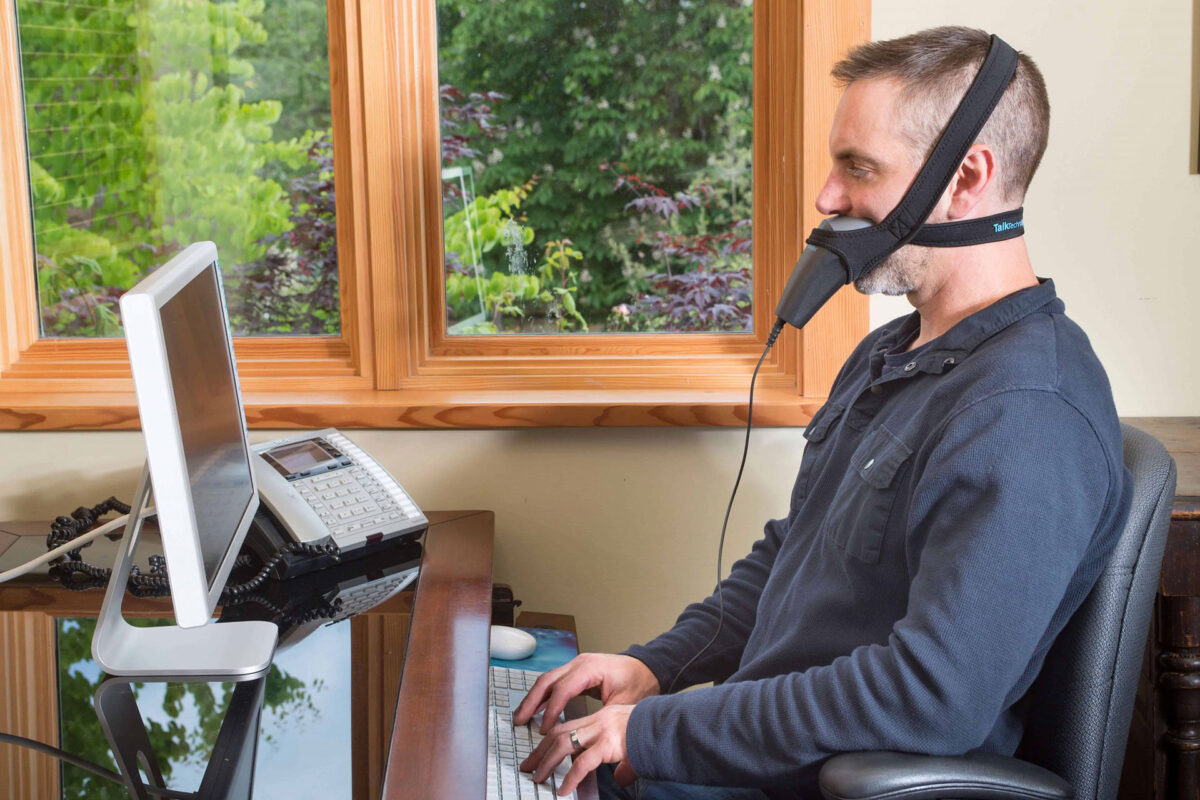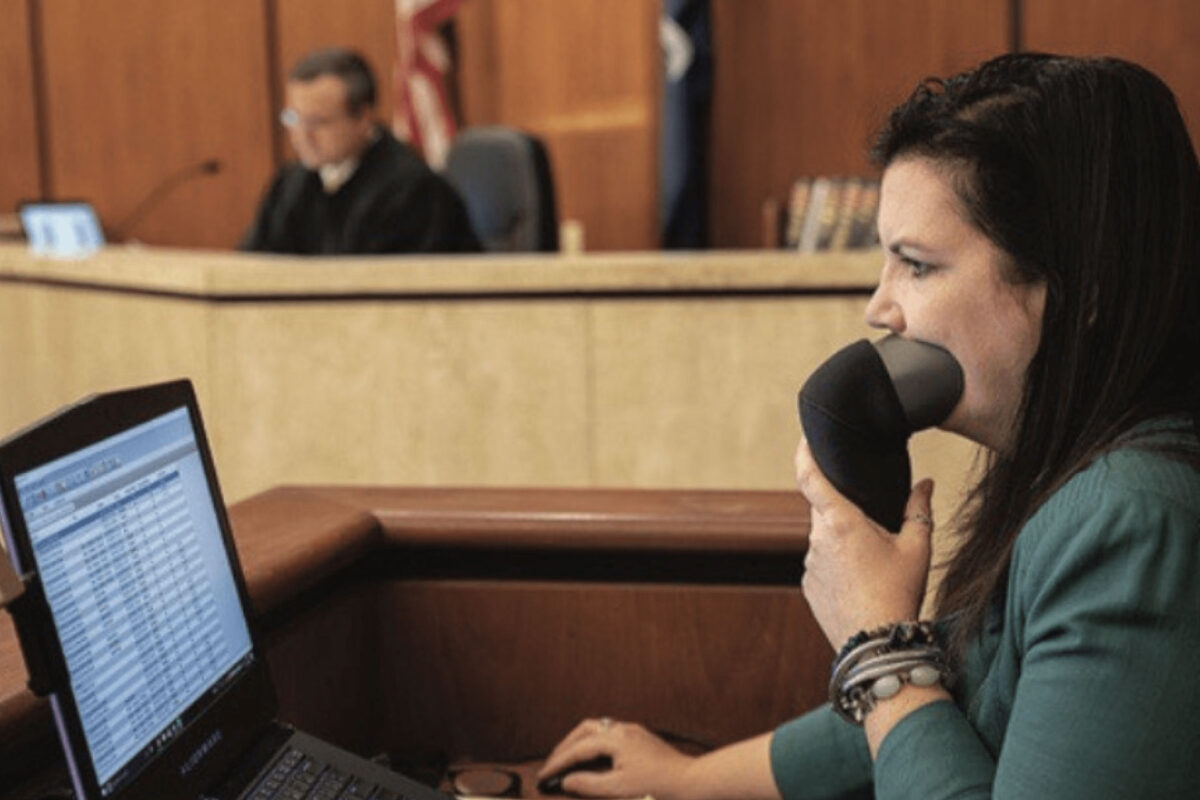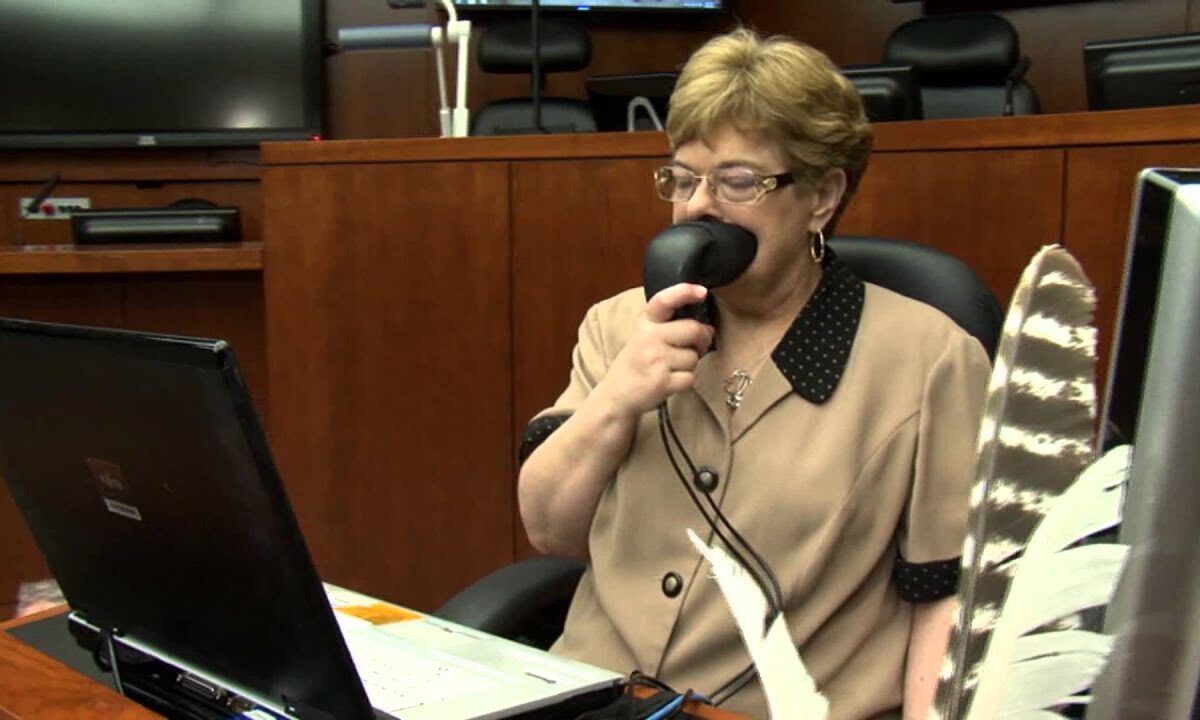While everyone enjoys preparing final argument, the foundation of any compelling final argument comes from the key building blocks – direct examination and cross-examination. Understanding how to create riveting direct examination and devastating cross-examination is the key to winning any trial. This article helps trial lawyers understand how to develop direct testimony so it is compelling and memorable to jurors.
Delving Deeper: Wired vs. Wireless Stenomask for Speech‐to‐Text Transcription
When it comes to choosing between a wired stenomask and a wireless stenomask for speech‐to‐text transcription, it’s important to consider the advantages and potential limitations of each option. Currently, the wired stenomask stands out as the superior choice for several reasons.
Advancements in Voice Writing Technologies: Transforming Court Reporting
Voice writing court reporting has undergone remarkable advancements, revolutionizing the field since the 1990s. Thanks to improvements in voice recognition technology and computer hardware and software, voice writing has become a highly accurate and efficient method of transcription.
8 Valuable Tips from Court Reporters to Attorneys for Successful Remote Proceedings
“Arrive early and ensure your technology is in optimal working condition before the proceedings begin. Test your audio and video settings to avoid any technical hiccups that may disrupt the remote proceedings.”
“Create a professional setting for your remote proceedings. Choose a quiet location with proper lighting, and dress in a manner that reflects the seriousness of the proceedings.”
“To ensure clear and uninterrupted audio, use a headset or headphones during the remote proceedings. Remember to mute your microphone when not speaking to minimize background noise.”
“Maintain a stable internet connection throughout the proceedings. Take the time to familiarize yourself with the remote platform and any specific rules or features to ensure a smooth experience.”
“To maintain focus and professionalism, avoid multitasking or checking emails during the proceedings. Give your undivided attention to the matter at hand.”
“Speak clearly and at a moderate pace, allowing us court reporters to capture your words accurately. Remember to pause briefly before speaking to allow for proper notation.”
“To avoid confusion and ensure clarity, designate one speaker at a time during the remote proceedings. Wait for the previous speaker to finish before beginning your statement.”
“When using names, unfamiliar terms, or acronyms, take a moment to spell them out or provide clarification. This will help us accurately transcribe the proceedings.”
Following these valuable tips from court reporters will help you navigate remote proceedings with confidence, ensuring clear communication and the creation of accurate records that will benefit your legal practice.
Realtime Voice Writing: Unlocking the Power of Voice Stenography
Realtime voice writing is a remarkable transcription technique widely employed in court reporting and various industries. It harnesses the court reporter’s own voice, incorporating voice briefs and codes, to swiftly and accurately transcribe spoken words into text. Let’s explore the different voice writing techniques utilized in court reporting to facilitate seamless realtime transcription.






